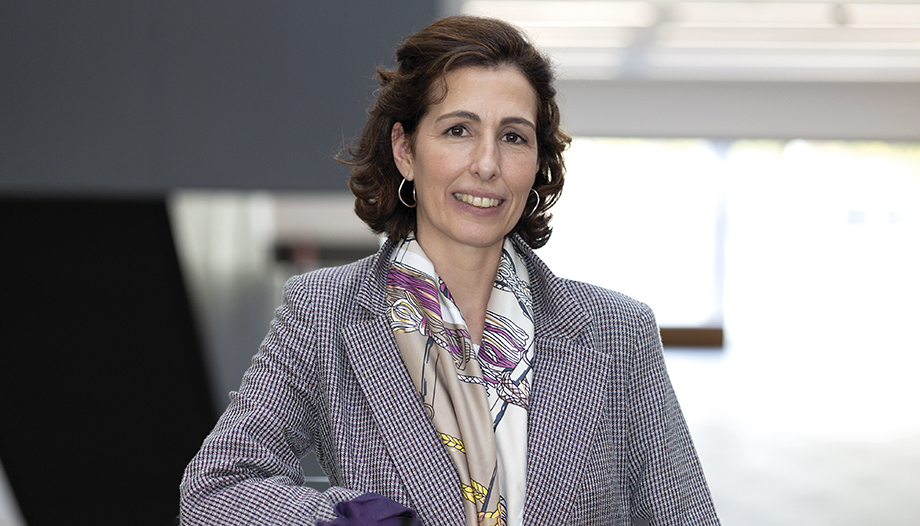In recent years, the presence of women in positions of responsibility within the Church has become normal. Although in the structure of the Holy See the presence of women barely exceeds 23 % in positions of government, this percentage increases notably at the diocesan level. A necessary praxis so that, within the limits proper to its nature, the Church responds, in its institutions and positions of government, to the reality of the action of women today.
In your book, you point to historical events that have consolidated problems of autonomy for women in the Church. Are they still present in the Church?
-Well, not only in the negative. In the history of the Church there were women -especially in the Middle Ages- who enjoyed enormous power. I am thinking now of the Abbess of the monastery of Las Huelgas (Burgos), a figure with quasi-bishoply power. The Pope himself supported her autonomy from the bishops and nuncios. It is also true that we have the opposite example.
At present, in the field of contemplative life we have the problem of age, we have been dealing with this for some time. There are monasteries with a very reduced number of nuns and of advanced age, that face enormous challenges for the health, the solitude, of economic type.
Pope Francis has seen the solution in the confederations of monasteries, in uniting them. This, some have denounced as an interference of the authority and others consider it exactly the opposite. It is true that for an elderly nun to leave the monastery in which she wishes to die has dramatic overtones. At the same time, they cannot be left alone... Perhaps it is a problem almost similar to that which many families encounter with their elders. It is easy to give an opinion, but it is not a matter that has an easy solution.
In recent decades, the world has experienced a process of change in the role of women and terms such as empowerment or liberation have come to the forefront. Are they applicable in the Church?
-These terms are used a lot: empowerment, liberation, emancipation. But their meaning has many connotations, not all of us understand the same thing. Ideologies, so typical of our times, have had a huge impact on these words, changing or transforming their meaning.
On the other hand, I think it is remarkable that women today have a very different place in society than our grandmothers had. In order to achieve this change, many women had to work and risk a lot, and we have to be grateful for that. But, at the same time, although bringing about social change may require, at first, a certain amount of strength, I think it is a mistake to see "women's liberation" in terms of violence or competition with men.
The world needs peace, and this also in this field. In particular, Christianity is a religion of peace. For this reason, I do not see it appropriate that some groups generate violence or disunity in the Church under the pretext of a greater valorization of women. It is necessary to continue working, without a doubt, but from the perspective of Christian harmony and peace.
How does Canon Law support not only the possibility but the necessity of women's participation in the governance of the Church?
-In reality, Canon Law says nothing about the need for women in government. It is rather the praxis of government that has to begin to include them. For this to happen, it is necessary that the authority of the Church discover the great value of the contribution of women in decision-making.
In juridical matters, the limit for women in the government of the Church is that of any layperson. Is there still clericalism in this area of ecclesial government?
-A few years ago Pope Francis modified in the Code of Canon Law the requirement of being male to receive the lay ministries of acolyte and lector. With this change it can be said that, in the universal legislation of the Church, there is no difference between a male and a female layperson.
You speak of a process of deepening anthropology and its development in equality and co-responsibility. Is there a risk of losing this basis in favor of a "right to have rights" as it exists at the civil level?
-Sometimes it seems that there are people who prioritize control over things over justice and truth. However, although it may seem a risk, it is the only way. In Western civil society the problem is not in equality or justice, but in the denial that there is truth. It is an issue that is reflected very well in the latest document of the Dicastery for the Doctrine of the Faith, Dignitas infinita.
We must not forget that we are dealing with a hierarchical institution. To what extent does the sacrament of Holy Orders confer power and where does the lay field open up?
-The hierarchical organization is proper to the Church; she cannot renounce it without losing her identity. Priests are necessary in it, but so are the laity. And at the same time, the work we do does not give us dignity but the fact that we are children of God, and this is the foundation of the equality of all the faithful. We should promote more the awareness that in the Church there are no first or second category faithful, we all have the same. Moreover, the work of the priest needs the work of the laity and vice versa. We are not dealing with isolated or contrary spheres, but complementary ones.









